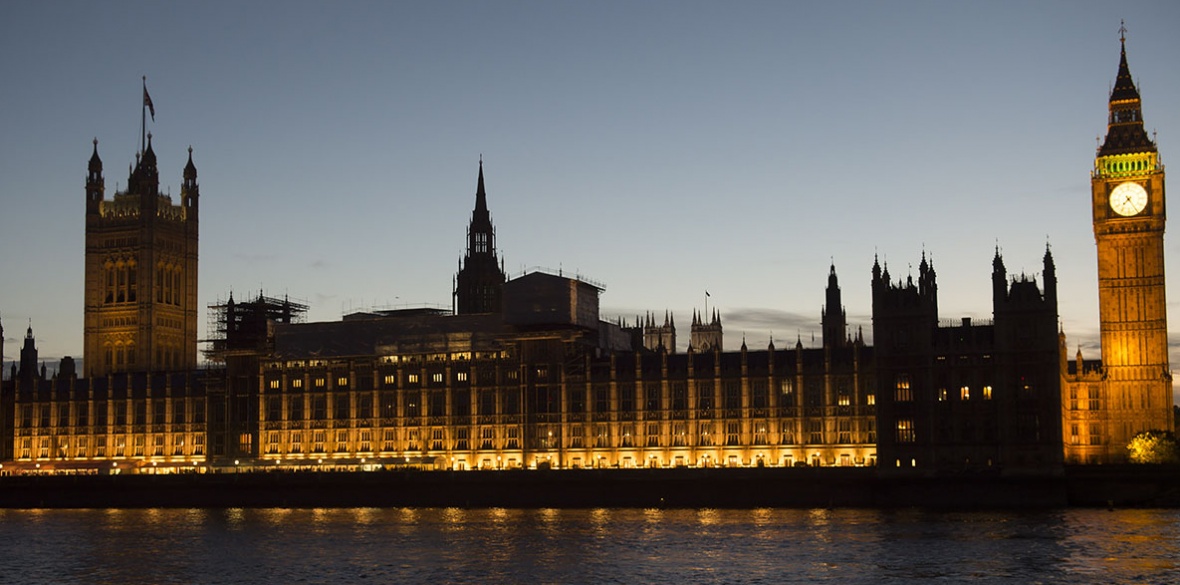This is the last article you can read this month
You can read more article this month
You can read more articles this month
Sorry your limit is up for this month
Reset on:
Please help support the Morning Star by subscribing here
BRITAIN is becoming more corrupt. According to the campaign group Transparency International, this country has now fallen to number 20 in its annual corruption perception index, below Uruguay and Hong Kong among other countries.
Over the last five years, Britain has experienced the biggest fall in the points score on which the index is based of any country in Western Europe.
The chief executive of Transparency International UK, Daniel Bruce, commented: “It’s clear that business leaders and other experts are more concerned than ever about political corruption and the abuse of public office in Britain.
“We need urgent action from ministers to restore much-needed confidence in the integrity of political and public life.”
Good luck with that. Tory ministers are a large part of the problem and no part of the solution. The immediate cause of the deteriorating perception of honesty in public life is the profoundly corrupt awarding of PPE contacts during the Covid pandemic.
The biggest public health crisis in a century was an opportunity for some to seek enrichment. Michelle Mone, ennobled by David Cameron, is just one example.
She and her husband profited to the tune of around £60 million providing equipment to the NHS, despite having no previous experience in the medical supply business.
These lucrative contracts were secured through a “VIP lane” for fast-tracked deals, access to which depended on contacts with top Tories. That the government now alleges, and Baroness Mone denies, that some of the equipment supplied was unfit for purpose is merely icing on the cake.
Yet it would be a mistake to believe that cases like this emerge out of nowhere, or that Tory ministers are uniquely to blame for them.
The roots of the rot lie deeper, in the dynamics of neoliberalism. Forty years of coercing society into untrammelled domination by the market has deeply scarred politics and public service too.
It has led, most obviously, to medieval levels of inequality, with even mediocre business people able to get sensationally rich if they are able to take advantage of public contracts.
Their returns are many multiples of the salaries paid to politicians and civil servants, a far greater discrepancy than in pre-privatisation generations.
Yet it is ministers and officials who set the rules by which businesses profit so handsomely. Westminster and Whitehall regulate — or don’t — industries and markets.
So MPs and top civil servants alike start looking enviously at the vast rewards which they enable but do not enjoy. They too want a piece of the action.
Thus the institutionalised corruption of the “revolving door,” which speeds policy-makers from the summits of political power to far more lucrative seats in the boardrooms they previously regulated.
Neither MPs nor top civil servants any longer expect to serve until retirement. Instead, “service” is merely a grifters’ waystation en route to greater riches.
And of course, the prospect of being paid by the businesses one is writing the rules for influences how the job is done to start with.
Every politician will know that there will be no highly paid sinecures for those who put the people’s interests before profit while in office. So a nod-and-a-wink today is paid off in cash down the line.
And this corruption is, for the most part, entirely legal. Toothless watchdogs supposedly regulating conflicts of interest are ignored by everyone from Boris Johnson on down.
There should be no surprise that the public is concluding that their country is increasingly corrupt and that venal politicians are only in it for themselves.
They are right. But to tackle the problem at source means addressing the nature of neoliberal capitalism.









